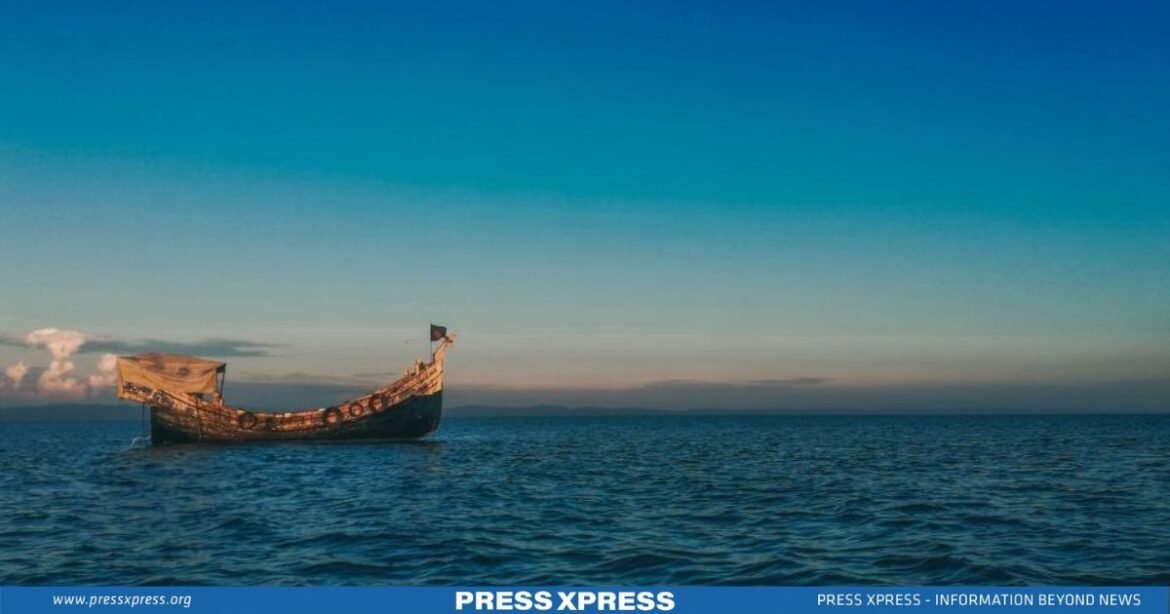Key highlights:
- Bangladesh acquired 19,467 sq. km, a significant part of the disputed Indian territory in the Bay of Bengal, totaling 25,602 sq. km.
- Coastal tourism, contributing 5.0% of global GDP and employing 6.0-7.0% of the workforce, is a crucial economic driver.
- The fisheries industry provides 60% of the country’s animal protein, contributes 3.52% to GDP, and makes up 1.39% of export revenues as of 2020.
- In the offshore oil and gas sector, Bangladesh, with 29 gas fields, has vast potential with 7.25 Tcf of gas reserves, though only 1 Tcf is offshore.
The ocean economy plays a crucial role in today’s development framework, advocating for more environmentally friendly, sustainable, and inclusive economic paths aligning with the 2030 Agenda for Sustainable Development and the Sustainable Development Goals (SDGs), particularly Goal 14, which focuses on the conservation and sustainable use of oceans, seas, and marine resources for unrestricted development.
You can also read: Sheikh Hasina to Head Fourth Term; New Cabinet Tomorrow
Discussions have arisen about the establishment of a blue economy authority to systematically address the substantial development activities required, with experts suggesting that a strategic and meaningful approach could unlock business opportunities totaling $40 billion shortly from untapped marine resources. Globally, despite the estimated $24 trillion worth of resources in the blue economy, only around $3.0 trillion has been effectively utilized, according to experts.
Bangladesh successfully acquired 19,467 square kilometers of the disputed region, comprising a significant portion of the claimed Indian territory in the Bay of Bengal, totaling 25,602 sq. km. Additionally, the country asserts its rights to a 200-nautical-mile exclusive economic zone and territorial control in the Bay, opposing Myanmar’s stance.
Global Blue Economy Overview:
- Total estimated resources: $24 trillion.
- Utilized resources: $3.0 trillion.
- Potential untapped resources: $21 trillion.
Bangladesh’s Maritime Achievements:
- Acquired disputed region: 19,467 sq. km.
- Total claimed Indian territory: 25,602 sq. km.
- Exclusive economic zone: 200 nautical miles.
Marine Bounty and Economic Potential
Bangladesh boasts three Marine Protected Areas—Swatch-of-No-Ground, Nijhum Dwip, and Saint Martin’s Island—teeming with diverse marine life, including whales, dolphins, sharks, rays, corals, seaweed, and other plants and animals. Additionally, the country owns 60 percent of the Sundarbans, a 10,000-square-kilometer area, half of which is now designated as wildlife sanctuaries.
The expanded sea area in Bangladesh presents significant economic opportunities across various sectors, such as fisheries, mineral resources, pharmaceuticals, transportation, energy, food, health, and tourism. This extended sea area constitutes around 81 percent of the entire mainland, providing ample possibilities for development.
Despite a 660 km-long sea boundary, fishing vessels in Bangladesh are limited to operating within 70 km, restricting access to nearly 600 km of marine territory. This limitation results in neighboring countries, like India and Myanmar, frequently exploiting these untapped waters. Moreover, fishing nets are constrained to waters above 200 feet, preventing access to valuable deep-sea resources.
Coastal tourism, contributing 5.0% of global GDP and employing 6.0-7.0% of the worldwide workforce, is a crucial economic driver. Bangladesh, with 75 potential tourist-friendly outer islands, can tap into this lucrative sector, contributing to GDP growth and supporting Sustainable Development Goals (SDGs) by 2030.
Unlocking Bangladesh’s Maritime Potential
Nijhum Dwip: Rich biodiversity
Saint Martin’s Island: Vibrant ecosystem
Sundarbans – A Natural Treasure
- 60% ownership, 10,000 sq km area
- 50% designated as wildlife sanctuaries
Economic Opportunities
Fisheries
- Current limitation: 70 km boundary
- Potential for expansion: 660 km sea boundary
Pharmaceuticals, Transportation, Energy, Food, Health, and Tourism
- “81% of mainland – Opportunities for Development”
Biotech Breakthroughs, Energy Exploits, and Fisheries Fortunes
The fisheries industry plays a vital role in the economy, providing sustenance, employment, and foreign exchange. It constitutes 60% of the country’s animal protein supply, contributes 3.52% to GDP, and makes up 1.39% of export revenues as of 2020. To ensure sustainable growth, addressing challenges like growth overfishing and recruitment overfishing, particularly for the Hilsa stock, is crucial. Bangladesh’s proactive measures serve as a model for collaboration with India and Myanmar.
In the offshore oil and gas sector, Bangladesh, with 29 gas fields, has vast potential with 7.25 trillion cubic feet (Tcf) of gas reserves, though only 1 Tcf is offshore. To maximize gas output, Bangladesh needs extensive drilling and emphasizes collaboration between the public and private sectors, including data sharing, monitoring, and best practices.
Innovative national initiatives, such as Bangladesh’s Delta Plan 2100, showcase elements related to the coastal and marine sectors. Addressing resource governance, equitable benefit sharing, and access to technology and finance is crucial for harnessing the substantial energy potential from marine sources.
Despite global interest in marine resources, Bangladesh has yet to tap into the potential of blue biotechnologies. Marine biotechnology is projected to experience 10-12% annual growth globally, presenting significant opportunities for sectors like pharmaceuticals and coastal aquaculture in Bangladesh. Utilizing marine organisms for novel materials could bring substantial benefits, particularly in healthcare and the food sector.
What Bangladesh Can Learn from Global Blue Economy Triumphs?
Several countries, including Norway, Canada, and Singapore, have successfully embraced blue economy principles, utilizing marine resources for economic growth with a focus on environmental sustainability. Singapore’s approach, outlined in the National State of Ocean and Coasts (NSOC) 2018 report, emphasizes a sustainable ocean-based economic model.
Singapore’s integrated urban coastal management (IUCM) framework addresses the challenges of limited coastal areas, with initiatives like the Marine Aquaculture Centre (MAC) ensuring the sustainability of local aquaculture. Singapore also explores ocean renewable energy (ORE) through projects like the MAKO Tidal Energy Site and promotes itself as a sustainable tourism destination, prioritizing environmental awareness.
Expert Opinion

Chairman and Associate Professor
Department of Oceanography
University of Chittagong
Chattogram-4331, Bangladesh
As blue economy defines the sustainable ocean economy which declared to explore and exploit marine resources through maintaining environmental sustainability. Like other developed countries, Singapore, Norway and Canada have some initiatives like ocean based different economic models, which boosted coastal management, offshore aquaculture tidal renewable energy project etc. In Norway more than 5% people engaged with seafood sectors and aquaculture industries. Canada earn more than 30 billion US dollars from ocean based industries each year. Tourism is one of the important business hubs in Singapore which initiated blue economy in an environmental sustainability. So, from the discussion it is proved that environmental sustainability is the key priorities for those above countries to utilise marine resources for blue economic growth.
In Norway, where approximately 5% of employment is linked to the petroleum industry, the seafood sector thrives, providing over 31,000 jobs in 2018. Aquaculture, constituting 77% of the sector’s value, has seen a substantial increase in production value per employee. The emerging blue bio-based economy significantly contributes to coastal communities, highlighting its role in value creation.
Canada, with one-fifth of its population in coastal areas, generates over $30 billion annually from ocean industries. Recent investments in innovation, sustainability, and ocean protection have led to cleaner coastlines, resilient communities, and improved partnerships with Indigenous groups. The common thread across these examples underscores the importance of healthy oceans in supporting a thriving blue economy while sustaining traditional industries.
As the world explores the vast potential of the blue economy, Bangladesh has the opportunity to not only learn from global successes but also to contribute significantly to the sustainable development of its coastal and marine sectors. By addressing challenges, embracing innovation, and fostering international collaboration, Bangladesh can chart a course toward a thriving and responsible blue economy, ensuring the prosperity of its people and the health of its oceans for generations to come.


